I’ve been fully self-employed for two and a half years now, and I dabbled a bit before that. I’m often approached by people who are considering going freelance, but haven’t quite decided if they’re ready to take the plunge. So I thought I’d jot down my thoughts once and for all (jk, I am constantly change my mind) in a Substack, in an attempt to help with that clarity and perspective. Please do comment with any burning questions/hot takes 🌶️
Already made the move? I’m thinking of writing another post about what happens when you get here…
Freelancing not your bag? Some of these musings are applicable to decision-making, life and careers in general, or you can browse past posts here.
Happy scrolling!
This week, I spoke to two seasoned freelancers (one seven years in, one 25 years in) who told me that 2024 was the worst year they had ever seen for self-employment.
What better time to write a post about whether going freelance is a good idea, right?
But while I agree that the market is tough right now, it’s not stopping more and more people from joining us…
Why are so many people going freelance?
Freelancing is nothing new.
However, stats show that it’s becoming an increasingly popular way to make a living—or at least, some extra cash.
The number of self-employed workers in the UK has been steadily rising since the nineties. Today, 7.4 million people are freelancing in the UK, either part or full-time (interestingly, 64% of freelancers in the UK are also employed). And 1 in 4 people in the UK would like to make an income through freelancing in the future.
Why the growing interest in going it alone? Well, it doesn’t take a rocket scientist to point out the compounding factors that make freelancing an increasingly attractive career move:
Financial necessity: amid a cost of living crisis and widespread layoffs, people are turning to freelancing to generate extra income or plug the gaps in between full-time jobs.
Tech opening the doors to new ways of working: remote work is also nothing new (my first job out of uni was fully remote), but the pandemic showed us we can achieve a lot without leaving the house. Digital marketing means we can now reach a literal world of potential clients or customers from our bedrooms. Tech has spawned a whole load of new types of products and services.
Aspirational lifestyle factors: offering freedom, success and self-realisation, freelancing is the new American Dream—whether you want to earn a six-figure passive income (spoiler alert: it doesn’t exist) or travel the world in an artfully converted camper van (same).
Practical and health-related lifestyle factors: for many trying to manage childcare, chronic illness, mental health or disability, freelancing offers a viable and vital way to support yourself and your family.
Yet however pressing these reasons or seductive the idea of being your own boss, freelancing is not for the fainthearted—that’s why it’s often so difficult to decide whether it’s right for you.
The mess
In my line of work (coaching/startup marketing), I usually meet two camps of people who are doing the freelance fandango: 1) those in stable, full-time jobs that are making them miserable and 2) those who are taking a career break or have been made redundant, and are figuring out their next move.
If you’re in the first camp, you might be suffering from the gilded cage effect: you feel undervalued, burnt out or restricted by your current role or environment, but you’re (understandably) scared to give up your stable salary, pension, health insurance or lovely teammates.
If you’re in the second camp, you’re freelancing as a way to pay the bills and keep busy while you decide what you’re looking for or find another full-time job. Perhaps you’re enjoying the flexibility and autonomy, and the clients are rolling in, which makes you wonder whether this could become a full-time thing. Or have you just got lucky…how long will it last?
Alternatively, freelancing feels kinda slow or hard, and you’re not sure whether this is normal/it will get better, or it’s a sign that freelancing isn’t for you. Your time and attention are divided between finding freelance clients/doing freelance work and applying for full-time positions, meaning you’re not really giving your all to either.
Make it make sense
I’m someone who has been in both camps. Going freelance was in the back of my mind for years before I did anything about it.
I also had a few false starts after I’d lost or quit full-time roles, where I’d spend a few months interim freelancing, then go back in-house.
The last time I did this, I knew something wasn’t right. It was a great opportunity with a really lovely, genuinely mission-led company, but I could feel it in my bones that this wasn’t the path for me. Ultimately, the company went into administration and it gave me the push I needed to commit to self-employed life.
So I can very much relate to the indecision, doubt and anxiety that surrounds the decision to go freelance—which is both normal and necessary.
As I’ve written about before (and especially for fellow Libras), making big decisions is always tricky. Plus, the decision to go freelance is a perfect storm of factors that Google AI tells me make decisions so hard:
Uncertainty: unlike a full-time job with a fixed salary and a clear path to progression, there’s no way of knowing what freelancing will hold—from one month or even week to the next.
Confidence: freelancing requires a certain level of self-belief, faith and confidence. Unlike deciding to apply to a full-time role, no one else is going to give you the job or make the decision for you; you and you alone are responsible for your job title, job description, salary, progression, and more.
Analysis paralysis: from LinkedInfluencers to digital recruitment, we’re fed more information than ever about jobs, career paths, lifestyles and success. Parsing all this information and deciding what is most relevant to you as an individual is a big ol’ task for your brain.
Anxiety and stress: lots of us make the decision to go freelance from a less-than-ideal place, like burnout or job searching. Anxiety affects the prefrontal cortex, which (super conveniently!) is where our decision-making happens.
So how do you get the clarity and perspective to make the right choice?
The work
There’s plenty of content that will guide you through the practical and financial steps of going freelance. I’m not going to tell you information that’s already out there, nor do I want to be prescriptive about the “right” way to freelance—there isn’t one.
What I will say is that your relationship to money and financial stability will be a huge factor in your decision to go freelance. In general, I think that being able to set yourself up as a freelancer requires a degree of security and privilege, whether that’s a literal savings buffer or the psychological safety of knowing you have people to support you if shit hits the fan.
But honestly, everyone is different—I’ve known plenty of successful freelancers who have no plan B, for whom that psychological safety is simply being strong-willed. Equally, I know plenty of financially privileged people who would be terrified by the prospect of going freelance (and by the way, that’s totally valid—as I wrote about here, freelancing is not the superior career choice).
Instead, I want to explore the considerations that will depend on you as a person, beyond your financial situation: what drives you, what scares you and what lights you up. Based on my own experiences and those I’ve witnessed through freelance friends and coaching clients, here’s what I’d suggest musing on…
7 questions to ask yourself before going freelance
1. For how long have you nurtured the dream of going freelance?
The idea of going freelance rarely comes as a moment of epiphany. Rather, it’s a slow-burning dream or lingering hunch that we live with for a while before we do anything about it.
If you’ve been toying with the idea of going freelance for quite some time, it’s probably a strong indicator that this is something you’re serious about, rather than a passing, social-media-induced fantasy.
Paying close attention to your intuition (through meditation, journaling, art, coaching, therapy) vs. your instinctive fear around freelancing is probably the most useful way to guide you to the “right” choice for you.
If your intuition is strong, you may notice external serendipitous or synchronistic signals—someone approaches you about a freelance project out of the blue, you meet a freelancer who’s had success in your niche.
I’m not talking about some kind of “cosmic” intervention here; it’s about how you are perceiving these events. If your first thought is “it’s a sign”, that tells you a lot about what’s calling you.
2. Does a freelance career feel aligned with who you are, the service you provide and the difference you can make?
This boils down to a number of factors:
Your professional skills and technical proficiencies: are they translatable to a freelance career?
Your character strengths: will freelancing allow them to shine? Or are they better suited to a full-time role/in-house environment?
Your values: what is most important to you in your life—in general and right now?
Your sense of purpose, impact or mission: how and where will you be able to best fulfil these?
Your goals or vision: what are you working towards and how could freelancing support this?
For example, let’s say your North Star right now is buying a house. Is freelancing going to be a problem applying for a mortgage? Or will it allow you to earn and save more for a deposit?
Check out this post for a more detailed guide to running a self-knowledge audit.
3. What’s your relationship to risk and control?
To be a full-time freelancer, you need to be able to a) take risks and b) make peace with uncertainty. That doesn’t equate to being reckless or happy-go-lucky.
In many ways, I am a very cautious person, who thrives on routine and structure. I often find it very difficult to sit in the not knowing and have some controlling shadow sides. So as you can imagine, freelancing constantly tests me :)
However, overall I am someone who likes to push myself outside of my comfort zone and rejects the idea that I need to have my whole life mapped out in front of me. The older I get, the more this side of me wins.
What’s in your window of tolerance, which risks are you prepared to take and how much control you are willing to relinquish?
4. How do you feel about authority?
Freelancing tends to suit contrarian spirits like me who question the status quo and push back against systems of power (capitalism, the patriarchy, troublesome bosses, etc.). In my case, this is hugely ironic given that when I was in school, I was as goody-two-shoes as it gets.
Over the past decade, my inner contrarian grew louder and louder, until I could no longer ignore that voice. As a fully-grown (well, maybe semi-grown) adult, I resented the idea that someone else could tell me where or when I had to work. Perhaps because I’d had those formative experiences working remotely, going into an office felt like school for grownups.
Since I value independence and freedom, freelancing is the better option for me. That, of course, is not true for all of us. You may thrive in an office environment, enjoy a sense of institutional belonging or need the accountability of visibility.
5. How do you approach discipline?
Building on the above, you do need to be pretty self-motivated, disciplined and organised to work under your own steam.
Although I will say that this can hinge on your relationship to authority. When I tell people I’m self-employed, a common response is “Oh, I could never do that—I’d spend all day in my pyjamas watching Selling Sunset”.
However, this is often subject to their paradigm of being used to working for someone else. When you’re working purely for your own gain (i.e. everything you do is money in the bank), the stakes are very different. In my experience, it gives you more get-up-and-go, and really hones those organisation and time management skills.
6. What—or who—are you hiding?
“Anyone honest will tell you that possibility is far more frightening than impossibility, that freedom is far more terrifying than any prison.” - Julia Cameron, The Artist’s Way
To peddle your wares as a freelancer, you really have to own your strengths, be upfront about your beliefs and values, and put yourself out there. There's a huge vulnerability in this—something I’ve found in particular as a coach, where I am not just selling a service, but selling me.
My coaching comrade
talks about this “unmasking” in her latest Substack, and reminded me of Julia Cameron’s concept of the shadow artist:“Cameron describes shadow artists as people who linger in careers or roles close to their true passion but never fully step into it. Instead of claiming their own creativity, they stay in the background, adjacent to what they really want to do.”
This has certainly been true for me as a writer: my writing skills launched me headfirst and purely accidentally into a career in marketing, but soon became subsumed by all of the other skills and responsibilities I had to develop (crunching data, leading a team, strategy, reporting, navigating office politics).
Going freelance and niching in on copywriting has allowed me to reconnect with my creativity and have the time to nurture my own voice, rather than channelling all my creativity into other people’s brands.
It can be really scary to reveal those hidden parts—I’m constantly surprised by how much of our fear around risk-taking and self-reliance comes not just from a fear of failure, but also from a fear of success (as I wrote about in my first ever Substack).
But if you feel like your current career choice is keeping you small, perhaps it’s time to consider how freelancing could facilitate that unmasking.
7. Can you let go of the idea of forever?
When making decisions about your career, I think one of the most helpful things you can do is release yourself from the idea that whatever you do next is going to be forever. As
so beautifully put it in her recent newsletter:“Let's reframe the pursuit of “your thing” to “your next thing”. We tend to seize up when faced with the “last chance” of it all, so think of this as a lily pad for the next thrilling instalment of learnings and lessons. Merely a backdrop that sets the scene for how you'd like to grow through this chapter of life.”
Making a freelance career work does require commitment—whether that’s sacrificing leisure time to take on freelance projects alongside a full-time role, or going “all in” to make it your sole source of income.
That doesn’t mean you are committing to forever. A lot of us are still carrying around legacy beliefs from our parents’ generation that a career is a single path you have to stick to.
I think it’s time we released ourselves from that narrative and gave ourselves permission to change. Because the world of work has evolved, and so will our careers.
If there’s one thing that the past few years have taught us, it’s that we cannot predict the future of work. What we can do is adapt our careers to different needs, new interests and changing beliefs and accept that what lights us up today might be different to what lights us up in the future—and that’s OK.
Some pros and cons of being freelance
I want to end this post on a note of caution, but also hope.
I would tell anyone deliberating freelancing that it’s not an easy ride. You’ll almost certainly encounter wild highs and low lows. Clients will ghost you and take the piss, the odd one may not pay you. There will be times where you feel a bit isolated or lonely. You may never truly master how to negotiate rates and fees. You will be both overwhelmed and underwhelmed by work.
The best thing you can do is to make sure you have a strong support network around you: whether it’s making freelancer friends, joining freelance communities, or working with a coach (hi).
But a few years into my own freelance career? I wouldn’t have it any other way.
I love being freelance and draw so much inspiration from a new movement of people who are living and working on their terms. It’s insanely rewarding to build something that’s totally yours and design a life that aligns with your values, vision and energy.
I share these with zero judgement for full-timers, or assumptions that this is what everyone needs, but some of the biggest pros for me are:
Not being treated like a school kid and forced to commute to an office.
Honing a craft and being respected as a specialist, not a generalist.
Doing the work I enjoy—not managing others to do the work I enjoy.
The variety of different clients and projects and the ability to pursue multiple interests and passions simultaneously (whether it’s writing about a topic that fascinates me or investing in coaching training).
Diversifying my income and earning more than I could in a full-time role.
Learning how to manage my money like a proper person, rather than blindly hurtling from pay check to pay check.
A sense of satisfaction and achievement from set deliverables, rather than ongoing responsibilities.
Building a network of lovely freelance folk I’d never have met otherwise.
So, what d’you reckon…
…to freelance or not to freelance? I’d welcome different perspectives from freelancers, potential freelancers and staunch full-timers alike. And if anyone could do with a chat to talk it all though, please do hit me up via Substack messages or LinkedIn. Until next time 👋
About me + Messy Work
If you’re new here, I’m Lucia, a freelance copywriter, qualified psychology-based coach and enthusiastic Substacker.
This newsletter is dedicated to making sense of, moving past and really celebrating the messy work of life through personal essays, coaching insights and hardcore SATC references.
I’m loving getting to know all sorts of readers and writers on this platform, so please do muck in and say hi!
1:1 coaching for freelancers
Coaching has been a game-changer for helping me navigate big transitions, keeping me on track and supporting my general self-awareness and emotional maintenance. So much so that I trained as a coach and now offer 1:1 programmes dedicated to career pivots and freelancing with intention. If you’re curious to learn more, you can book a free, 30-minute discovery call here.





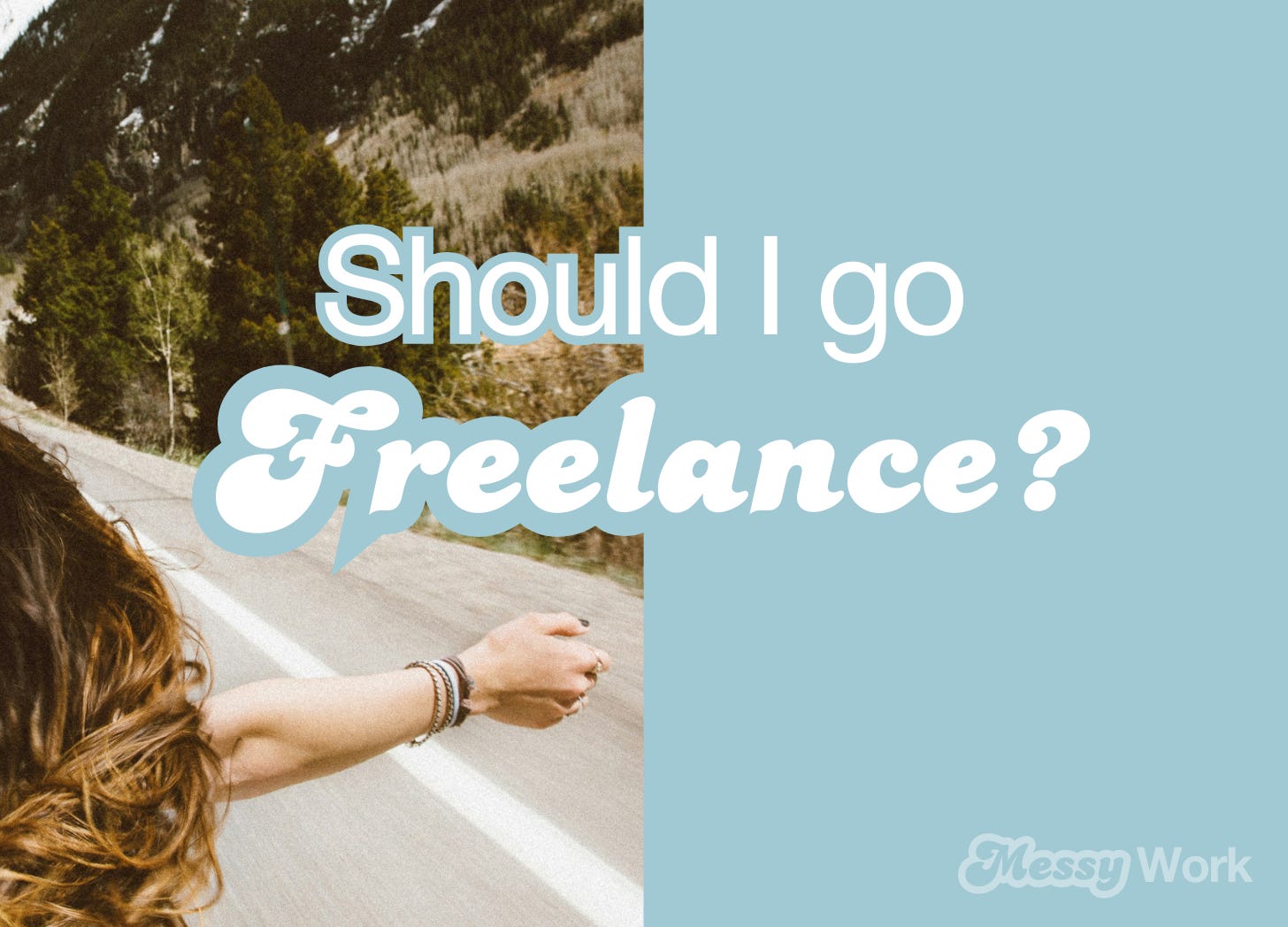
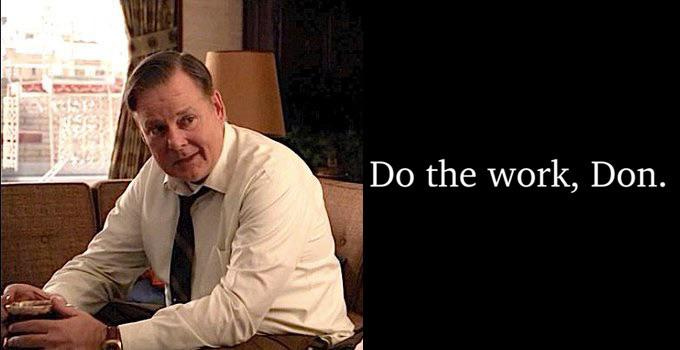
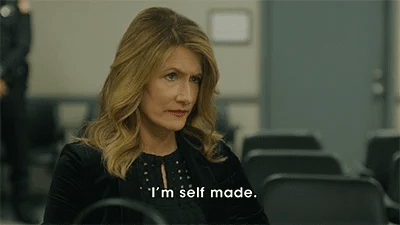

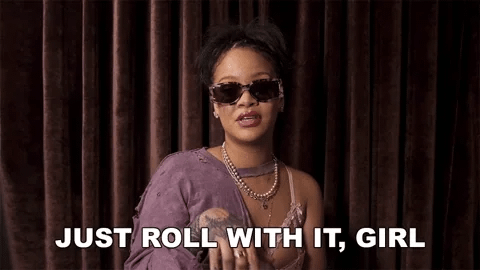
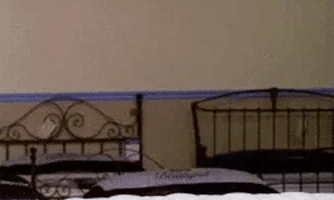
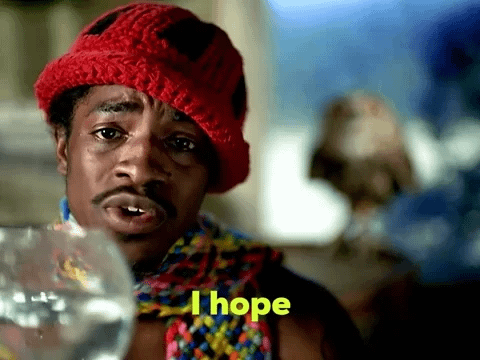
I only just saw this, thank you so much Lucia! Love these seven questions as such a powerful and much-needed pause before we spring into action.
Going freelance really is the backdrop to a new chapter of self-development. And an ongoing exercise!
I totally related to growing up as a super obedient kid that always did what she was told and now being totally done with authority 😅
Currently starting out my freelance journey and this was encouraging since I feel confirmed in my motivations to go this path :)